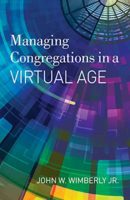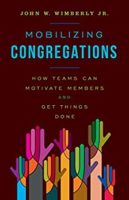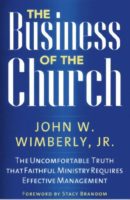Lately, I have been getting a number of requests to evaluate the staffing designs of congregations with worship attendance in the 200–400 range. I am asked to assess the current staffing design and propose some options for the future. It isn’t my favorite assignment, because I always worry that someone will lose a job because of the options I describe. In my advice to a congregation, I am always clear that a governing council needs to weigh the trauma and turmoil for a staff member and the congregation when a staffing change impacts an effective, dedicated staff member.
A congregation feels much more like a family than a for-profit corporation when it comes to reshuffling staff members or staff roles. So caution is not an option, it is a requirement, when considering staff changes. This is one of the reasons congregations need to be very careful when they hire a staff person. It is easy to hire someone, but difficult to remove or replace even a staff member who is clearly ineffective.
What are some of the trends I am noticing as I work with congregations about their staffing designs?
Religious Education & Youth Ministry
Many congregations are reconsidering how they do religious education. With so much Sunday morning competition for the time of children and youth, Sunday school as we have known it for a century is being reconsidered. In its place, some congregations are considering more home-based and mid-week forms of religious education. Adult education is increasingly handled by competent volunteers using resources ranging from educational DVDs to curricula produced by non-profits.
Since the mid-1950s, if not earlier, a director of religious education has been the first full-time hire after a pastor. Is a full- or even part-time religious educator needed on a staff in the 21st century? Many congregations have gone from full-time to part-time educators. Others are weighing whether even a part-time educator is necessary, especially if there is an associate pastor on the staff.
In contrast, a part-time youth minister remains popular. As a young associate pastor in the 1970s and early 1980s, youth ministry was an expected part of my job as an associate pastor. Today, many congregations are finding it more effective to find the right skill set and personality for youth ministry by employing a part-time person.
Sexton
Over the past thirty years, many congregations have changed from a full-time sexton/janitor to a cleaning service. For the most part, this was the result of cleaning services being cheaper. However, recently, I am hearing congregations yearn for the day when they had a full or part-time sexton. This staff member becomes a central part of the congregational family in ways that no cleaning service can match. Often the sexton’s tenure at a congregation outlasts multiple pastors. Add these family-system considerations to the rising cost of cleaning services, and I think we will see more congregations return to a janitorial/maintenance/setup person as part of their staff configuration.
Office Administration
Most of us can do our own word-processing, listen to voice messages and return calls, keep our schedule with a Google calendar-type program and handle work email traffic. In past times, these are all tasks that were done by the church secretary. The number of weekday drop-in visitors to the church has dropped as more church members have full time jobs. The number of phone calls to the office has also decreased as people prefer to communicate with emails and text messages.
So what does the office administrator do? In addition to traditional work such as worship bulletins, reports and scheduling things at the church, congregations are increasingly hiring people for this job who have stellar communication skills. The office administrator becomes the webmaster and Facebook supervisor, and works with a tech contractor to make sure the computer network is always working and backed up.
Given the reduced number of weekday visitors to the building, some congregations are dramatically limiting the number of hours the office is open.
Associate Pastors
Congregations are beginning to ask about the need for additional associate pastors. Instead, they are looking at more specific skilled needs such as communications, community ministry and small group leadership. Many times, these needs can be met by non-ordained, part-time individuals. Skill sets, not ordination, have become the priority.
The times are definitely changing and staff designs are changing in fascinating ways as well!
John Wimberly is an experienced pastor and consultant. As a consultant, he has worked with congregations and judicatories on strategic planning, staff designs for the 21st century, and congregational growth as well as financial and administrative management. He has MBA, MDiv, and PhD (theology) degrees. His books focus on effective management and leadership. John believes congregations can have a bright future!




